
What inspires us to play tabletop wargame campaigns?
For any player invested in their favourite games system, the opportunity to run or take part in a narrative campaign where one battle affects the next is very tempting and one I'm sure the majority of us have been involved with in the past. Whether you play sci-fi games such as Warhammer 40,000 or Star Wars Legion, fantasy games like Kings of War or Age of Sigma or ancient and historical game systems such as Flames of War or Hail Caesar, the chance to relive a piece of history or build your own narrative through a string of action packed tabletop games is certainly one of the most fun ways to play.
The question is, what really inspires us to run or take part in these campaigns?
Personally I’ve never been one for min/maxing or meta gaming and have definitely never been one for the competitive scene, so in most case for me it’s the removal of the competitive element and the introduction of some form of narrative play to the game. I appreciate that there are many people who know their rulebooks inside out and play each game to win, but I also know that there are a huge number of players that just want to roll dice, have fun and make their games count for something other than just a tally or wins and losses. Although in an ideal scenario we would all love to triumph in each battle we play and dominate our opponents by crushing them mercilessly, but in reality it’s the story telling that wins out for me, and when playing in campaigns, losing (even getting tabled) can still be fun.
As a prime example of the overall campaign narrative being vastly more important than winning, in the last 40k campaign I participated in, I lost an objective based mission and my opponent was lucky enough to reclaim one of their previously lost units; however we both agreed that narratively the unit was compromised by my Nurgle Lord and at any random point during our next game the unit might suddenly mutate and become a chaos spawn or daemon prince. This made for a really fun couple of games and a few cliffhanger moments throughout the campaign; whether we won or not there was always something to play for and every game was thrilling and entertaining. During these campaigns there is always a chance that one player will steam roller a few games so we tend to use this sort of random story telling mechanic to prevent one person running away with the campaign and becoming practically unbeatable. This keeps the campaign fun for everyone involved and ensures we’re all engaged and motivated to continue playing.
My inspiration for narrative campaigns tends to come from TV, film, a good piece of fictional writing, but I’m lucky enough that my gaming group is relatively creative and we all enjoy telling our own stories and creating general narrative for the armies we spend time collecting, building and painting. Most of our campaigns will revolve around some form of basic RPG system, nothing too complicated as keeping people engrossed in the story is far more important than speeding hours creating characters or upgrading units between games. Any skirmish game system, such as Necromunda that has some type of RPG levelling mechanic makes for a really solid story telling opportunity. These types of game systems compel participants to become more invested in their characters and units and more engrossed in the campaign’s story, and give players the thrill of levelling up individual models and units whilst desperately trying to keep their most valuable ones from taking crippling wounds or emperor forbid, being killed after foolishly sinking all their points into maxing them out.
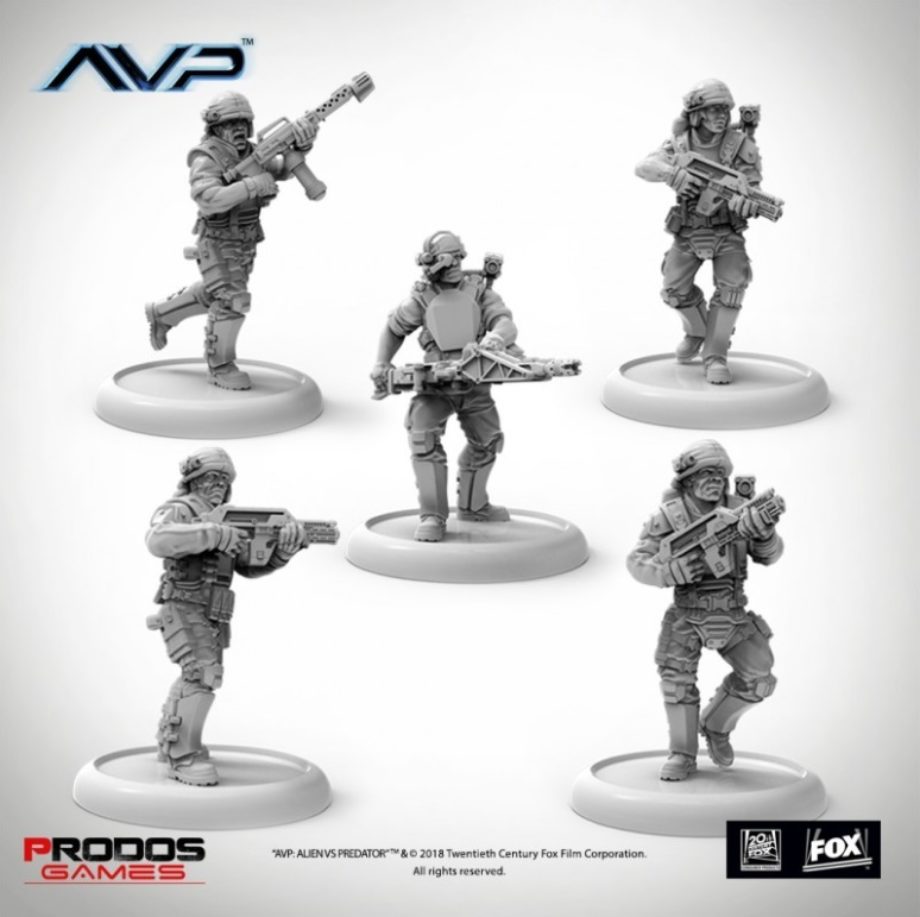
One piece of advice here, whatever game system or role play mechanics you decide to use as the backbone of your campaign, make sure it’s a simple one, or at least one that each player involved will understand. When Prodos first released their AvP range a few friends and I thought it would be cool to start an open-ended Colonial Marines campaign using the Prodos miniatures and the Leading Edge Aliens Adventure Game ruleset. We soon found out this was a huge mistake as the ruleset was so complex it became a chore to play. In hindsight it would have been so much easier to use some of the character creation elements from this insanely complicated rule set but use a basic 40k style tabletop ruleset to play the games. Needless to say we only played 2 games before it just became far too laborious to continue.
Even if your favourite skirmish game doesn’t have a levelling system just telling a linear story with the models and figures you have is great fun. A good example of this is Spectre Operations, a 28mm modern warfare skirmish game that focuses on highly skilled military operators and enemy militia forces. There are some really great examples of good storytelling to be found on YouTube for this game and the ones I’ve had the pleasure of watching are very reminiscent of the fictional work of Chris Ryan and Andy McNab. There are so many inspiring events that happen in fiction and can be witnessed in the media that just a snippet of one of these stories can be turned in to a huge sprawling campaign.
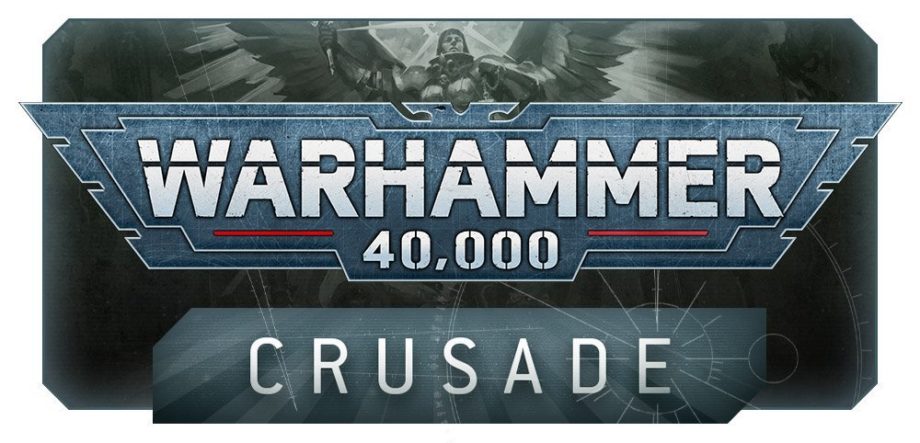
Recently Games Workshop has dipped its toe back into some sort of narrative play and although not nearly as in-depth and as fun as the old Inquisitor skirmish game system from GW, Crusade has given 40k players a taste of what a good campaign could be. The Crusade levelling system is pretty decent but the lack of any real ramifications for losing figures and units means that players can be as frivolous as they like without the fear of losing units throughout the campaign. I don’t find this campaign style very inspiring however, there is an abundance of good quality material that can be used to adapt a 40k crusade campaign and the sheer wealth of reference material from the past 34 years means no campaign game you play in needs to be the same. Of the hundreds of books available from Black Library I’m sure any one that has read at least one of them could create a story campaign based on its events.
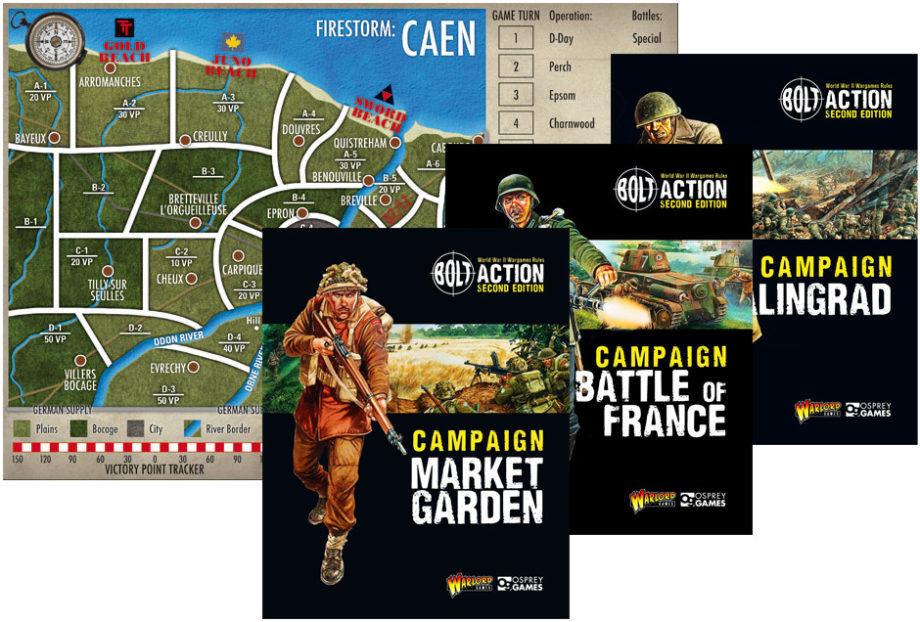
For the historical wargamer, the idea of re-enacting real life events and finding out what would of happened if the losers had actually won on the day is a huge appeal; besides, taking on the role of famous military leaders and pitting real life units and vehicles against their authentic adversaries whilst attempting to change history was the true birth of wargaming. Real life events inspire most historical wargame campaigns and the two game systems that come to mind when talking historical campaigns are Bolt Action and Flames of War. Both these game systems do campaigns and historical missions very, very well; where Bolt Action focuses on the individual missions that took place during particular periods of the war which can be pieced together fantastically to create a linear campaign, flames of war have invested a great deal of time into their map based firestorm campaign packs which can be used brilliantly if you have large group of players wishing to take part. There is nothing stopping players incorporating the two systems into one large map campaign where you can use the firestorm map to determine the location of individual player’s forces and then use either the Flames of War or Bolt action rules and mission scenarios to determine the outcome of an engagement. In fact, this is where campaigns can start to become real fun and where real inspiration starts to take root.
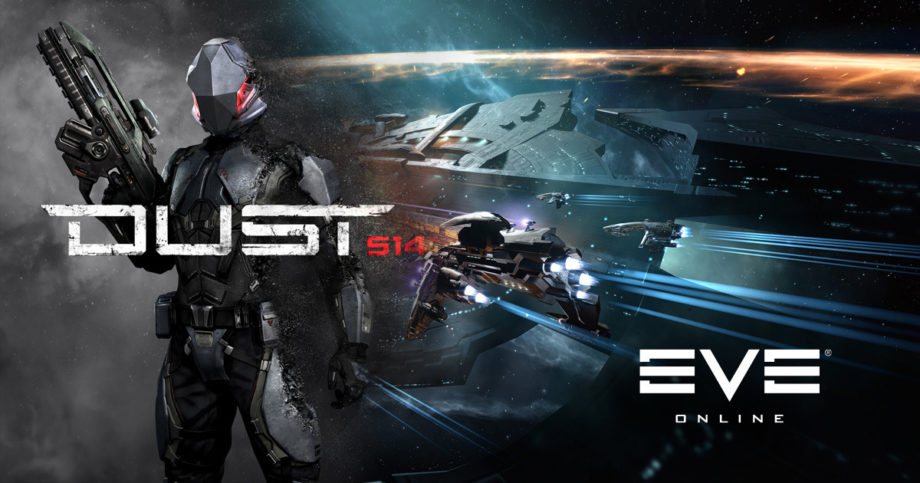
Have you ever played Eve Online? Ever heard of Dust 514? This was a cool concept and way ahead of its time. 2 separate games on 2 separate platforms that interacted seamlessly with each other; one game was a first person shooter on the PS3, the other a space-based MMORPG on PC; the interesting thing about them was that the Dust 514 games took place in real time on planets in Eve Online and Dust players could request orbital support from players in Eve which would arrive almost immediately. Although not strictly tabletop wargames it was a huge inspiration on the way I would run future tabletop campaigns and inspired me to buy so much Battlefleet Gothic and Epic 40k units at overly inflated prices from ebay because I loved the idea of playing each of these game systems in one linear campaign. Dawn of War had a similar effect on me, I loved the idea of my choices affecting the campaign outcome and the interactive map itself, and having limited time to complete objectives set by the campaign organiser gives the story a sense of urgency and consequence.
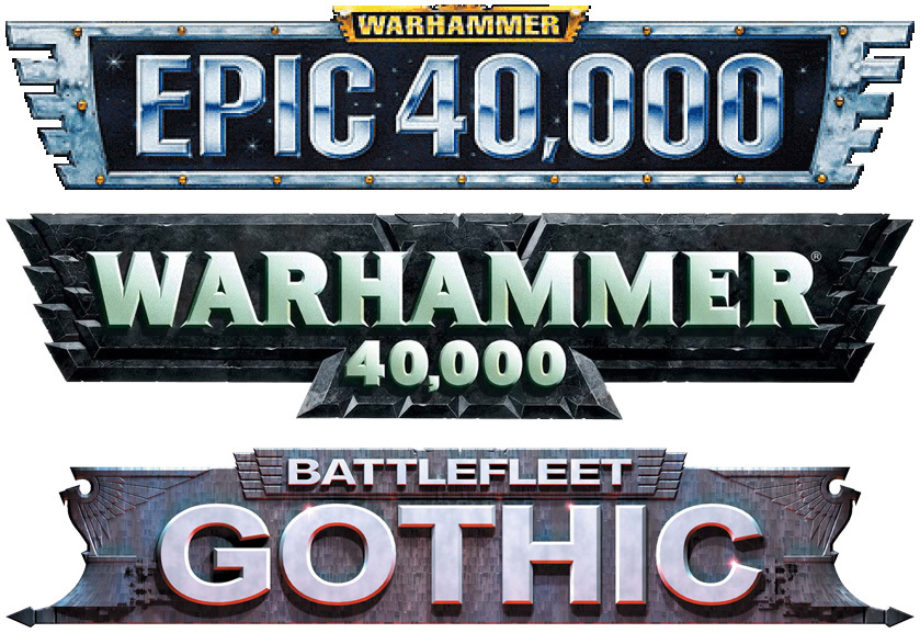
My absolute ideal wargame campaign though would consist of different game systems as it allows more people to participate, and the variety of choice offers very little chance of players getting “campaign fatigue”. Whether it’s a Warhammer 40k campaign that allows players to use any of Games Workshop’s current, or old specialist game systems including any edition of 40k, Epic 40,000, Battlefleet Gothic, Aeronautica Imperialis or Adeptus Titanicus; or a World War 2 themed allied invasion of Europe where players had the freedom to play any game system of that era including Flames of War, Bolt Action, What a Tanker or Blood Red skies, so long as each game counted for something and had an clear and obvious consequence or outcome players will continue to enjoy themselves.
Whatever your inspiration for setting up or taking part in a campaign, ultimately there needs to be a goal, a reason to take part and a reason to invest the time it takes to play out, especially if there are a large number of players involved. When creating a campaign, ensure to set objectives for each player to complete either periodically or as an ultimate motivation. For players who enjoy the storytelling element of campaigns their motivations will tend to write themselves, but for other players, the intrigue of how events unfold is what keeps them interested. There could be any number of reasons players may want to participate, either they want to try their hand writing or continue a narrative piece from a previous campaign or they could simply just be using it as an excuse to play more and make their games actual matter. I’m sure we have all walked away from one of those games that took ages to organise, was over in minutes and left us feeling empty and wishing we hadn’t even bothered. A narrative campaign has a special way of averting this sort of disappointment as there is always the next game!
Coming Soon...
Types of campaigns, and campaign examples.
In this issue I’ve looked at what inspires me to play campaigns and what motivates me to seeing them through. Next time I’ll be looking in depth at different types of campaigns and talking about the pros and cons of each of them and how I would go about using them to creating a narrative campaign. I’ll also be looking at some of the best examples available across a variety of different game systems. If you have any feedback or questions or would like me to discuss something specific please email us at [email protected]